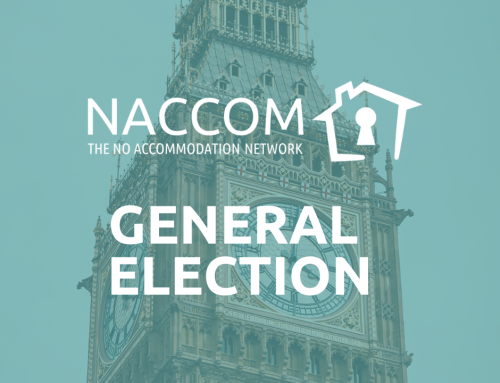The Government has announced planned legislative changes to HMO (House in Multiple Occupation) licensing for asylum accommodation in England, with a vote on the new rules expected in the House of Commons this week. The changes to HMO rules would allow landlords to house people seeking asylum for two years without obtaining a licence, a standard requirement for any landlord renting to more than one household in a single property. Our statement is below:
“Whilst we welcome steps to move people in the asylum system from hotels into more appropriate, community-based accommodation, it is absolutely vital that this is done safely and with adequate consideration of all the potential impacts – on individuals, on communities and on local services.”
“Our concern with the Government’s decision to suspend HMO (House in Multiple Occupation) licensing for asylum accommodation is that it will weaken measures that are designed to provide a minimum level of protection to people living in HMOs and the communities they are in, and that are essential to keeping them safe – such as fire, gas and electrical safety, and standards around overcrowding and sanitation. Stripping away these basic protections not only creates a two-tier system of shared housing standards that puts people seeking asylum disproportionately at risk, but embeds a differential approach to the treatment of refugees in the housing sector.”
“We know from the frontline work of our members who support people in the asylum system, that living in sub-standard and inappropriate accommodation can have a severe and lasting impact on people’s mental and physical wellbeing, which ultimately affects their ability to access support and successfully integrate into their community. Those seeking asylum are often dealing with high levels of stress and trauma, and above all need a safe and stable home environment. This should not be compromised just so the Government can exit people from hotels or accommodate new arrivals at pace. The solution to the asylum backlog, which has seen people stuck in limbo for months and even years, should not be a race to the bottom of asylum accommodation standards, which is the current direction of travel.”
“Instead of creating new, conflicting pressure on statutory and voluntary sector services to try and protect people within these new exemptions, the Government should be working with local partners to procure and manage good quality accommodation in communities.”
“What we need to see is a commitment by the Government to provide people seeking asylum with safe accommodation within communities that are equipped with the resources to support them, and that property standards for dispersal accommodation are managed and monitored in the same way as other types of accommodation, and akin to the Decent Homes Standard, with Local Authorities being sufficiently resourced and empowered to ensure that good quality accommodation is maintained. Embedding poor practice and standards in any housing tenure is not acceptable.”




